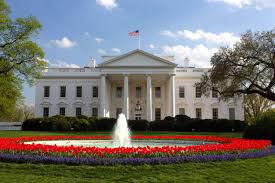President Trump: What It May Mean For U.S. Immigration

President-elect Donald Trump put immigration at the forefront of his campaign for the White House. He promised to take certain actions immediately upon taking office in January. There are some programs that he can repeal immediately and then there are other provisions of U.S. immigration that will require legislation in order to amend the current rules. This posting identifies those programs.
Deferred Action for Early Childhood Arrivals/Deferred Action for Parents of Americans
The Deferred Action for Early Childhood Arrival (DACA) program was established by the Obama Administration in order to allow undocumented individuals who were brought to the U.S. as children to obtain work permits. Thereafter, the Obama Administration established a similar policy known as Deferred Action for Parents of Americans and Lawful Permanent Residents (DAPA) for the parents of certain U.S. citizens and green card holders (lawful permanent residents). However, the DAPA program was never implemented due to a federal court challenge. These policies will most likely attract the immediate attention of the Trump administration because of its concerns that the Obama administration violated the U.S. Constitution by establishing them without following rule making procedures. Despite a grant of DACA, a recipient is still subject to deportation proceedings should the Department of Homeland Security (DHS) decide to deport him or her from the United States. If such were to occur, they are entitled to hearing before an Immigration Court.
Individuals who have been granted DACA should seek consultations with experienced immigration counsel to understand their rights and options to remain in the U.S. to obtain a lawful status.
Provisional Waivers
Certain individuals are eligible to apply for permanent residence through employment or family sponsors, but for the fact that they have been unlawfully present in the US. Under current law, most individuals who are unlawfully present must return to their home country to apply for lawful U.S. permanent residence. However, if the individual has been unlawfully present in the U.S. for more than 180 days (but less than a year), their application for permanent residence must be denied and they are required to wait at least three years before they may return to the United States (known as the three-year bar). If the individual has been unlawfully present in the U.S. for over one year, this bar is increased to ten years. A waiver of a three or ten-year bar can be granted for individuals with close permanent resident or citizen family members based upon hardship. Historically, this waiver could only be granted after the individual departed the U.S. and applied for U.S. permanent residence abroad. The Obama administration established through the regulatory process that hardship waiver applications could be provisionally granted before departing the U.S. At first glance, it seems that this could be the type of program that the Trump administration would oppose and would seek to stop by introducing a rule change to eliminate provisional waivers.
During his campaign, President-elect Trump often mentioned that a system had to be created for individuals who are deportable to obtain lawful status. This may indicate that this provisional waiver process will survive and perhaps even become a roadmap to lawful status for many individuals who have built their lives in the United States, including extensive family ties, and thereby also reduce the undocumented population. It is too early to tell at this stage as there is little information available as to President-elect Trump’s views on this issue.
Work Permits For Certain Spouses of H-1B and L-1 Workers
The Obama Administration introduced a rule to allow the spouses of certain H-1B and L-1 workers to apply for and obtain work permits while they await permanent residence. This program was established to address the fact that many individuals have to wait more than a decade before filing their applications for permanent residence, despite the fact that their employers have obtained all necessary certifications for the employees to obtain permanent residence. This rule change is widely popular with many employers as it was viewed as an effort to provide relief to an arcane and delay-ridden permanent residence process. Whether the Trump administration decides to implement a rule change to eliminate this benefit will depend upon a number of factors, including whether President Trump adopts a more business friendly tone than Candidate Trump.
F-1 STEM OPT Work Permits
On a related note, the new rule that allows foreign graduates from U.S. colleges and universities to obtain an additional two years of work authorization, provided their employers participate in E-Verify could be in the Trump administration’s crosshairs. However, the fact that employers of F-1 STEM OPT workers are required to participate in an enforcement program that is currently optional for most companies, as well as many new employer obligations imposed by the new rule, may convince Trump’s administration to leave this recently-overhauled benefit intact.
Nonimmigrant and Immigrant Visa Numbers
It is unclear from the campaign trail whether the Trump administration will introduce legislation to increase or decrease H-1B nonimmigrant visas or immigrant visas. Businesses have expressed strong desires for increased numbers as they continue to struggle to find qualified workers. With unemployment rates below five percent, the Trump administration may take the position that an increase in the number of highly skilled workers supports economic recovery.
Conclusion
The above discussion underscores one key fact. There are certain programs that the new administration will be able to immediately eliminate and others that will require time in order to promulgate new regulations, or to enact legislation through Congress. Moreover, it is not clear where the Trump administration will come down on whether these programs are valuable tools or hindrances to economic growth. As the Trump administration unveils its agenda for its first 100 days we will keep you updated on the immigration implications for individuals, their families and their employers.
